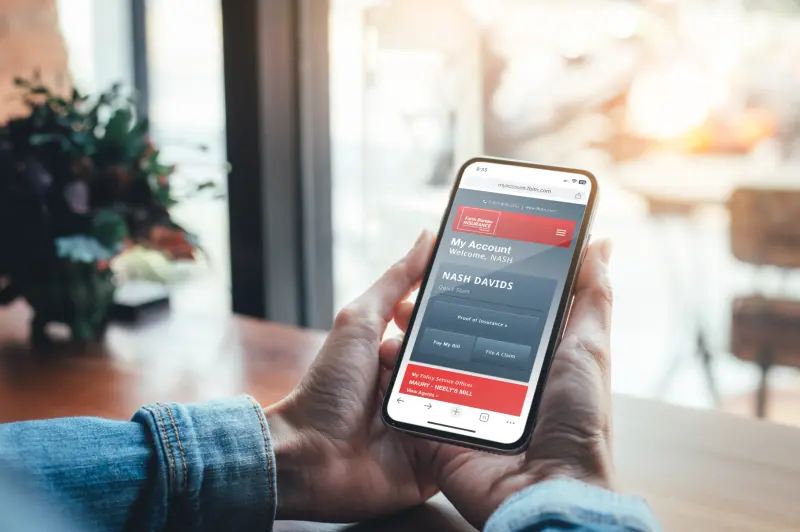Resources: Find Your Answers Here
Find the resources you are looking for or contact your agent for help.
Customer Service
PHONE NUMBER
877-876-2222
OPERATING HOURS
Monday – Friday
7 AM – 6 PM
Saturday
8 AM – 4 PM
FILE A CLAIM 24/7
Call 877-876-2222 or log in to start your claim
Online Services
Here are a few things you can do in your online account:
Pay a bill
Get insurance cards
Make changes to policies
View documents
Sign up for paperless
View policy details and more
Common Questions
Ideas Worth Sharing
Learn more about tips, tricks, and general insurance advice.

Here for you whenever, wherever you go
Download you proof of insurance, pay bills, and manage all of your policies in one place with Farm Bureau MyAccount.

